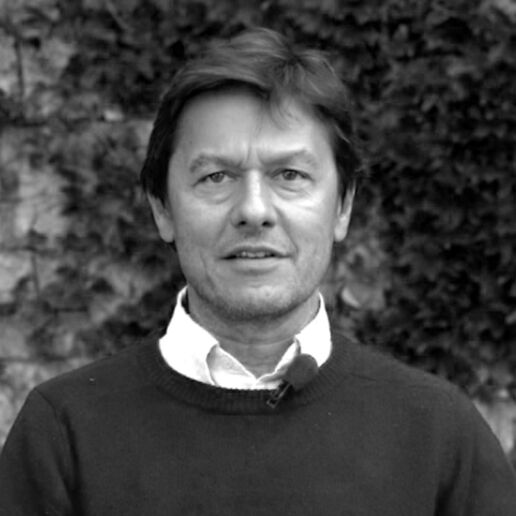YANKI YAZGAN
Whether it be a quaint shop, a steep hill or a park… We probably all have a secret spot where we got to hide, spend time and feel good. What is your special spot in Istanbul? Where did you miss going most during the quarantine?
The answer to this question would depend on your age because we seem to enjoy different spots and atmospheres in different stages of our lives. If I was in my early twenties my routine of Istanbul would involve heading to Istiklal Boulevard, which was still open to traffic back then, and stroll down to the fish market for a drink and bite to eat before going to Emek Cinema. You become more focused on familial relations and less resilient to hardship… You’re more concerned about finding ways to entertain the children, finding better eating options etc. During quarantine, I felt a yearning for places I’ve never been or seen. It was a “what have I missed” kind of feeling. I found myself missing places I never went to. I missed places I never saw but knew existed.
I live in Arnavutköy, a district in Beşiktaş. I’ve been living there for some time now but there are still streets I’ve never walked down and houses I’ve never seen. Sometimes when I take a small boat trip on the Bosphorus I find myself thinking “I’ve never been by that house”, “which street do I have to take to get there?” That would be a better description of my yearning for Istanbul. The city has something to offer wherever you go.
Imagine you are the guide to a group of tourists who had never been to Istanbul before. Where would you take them?
Usually, I want to take my guests to one of the city’s bazaars first. One of the fish markets where you can have fast but tasty food. Street food intrigues me wherever I go in the world. If my foreign guests have a free day, I try to arrange a tour along the Bosphorus – not in a private yacht but on one of the public ferries that go to and forth between the continents. The sense of docking and leaving… stopping and going… The Public City Lines have wonderful vessels which provide unique views of both the European and Asian shores of the city. I would not like for a history enthusiast to leave Istanbul before visiting the Chora Museum, or a football fan to go without seeing the crowds leave the stadium after a game. I’d also like to show parts of the city which have witnessed life. As a host, it’s easy to get carried away trying to show everything to your guests which could come across as imposing. Sometimes I find myself struggling to prove that the city still maintains its glory as an urban centre.
You’ve lived in many cities other than Istanbul during your education. Retrospectively, what do you think distinguishes Istanbul from the rest?
My hometown Izmir is also still really attractive but it’s hard to argue about beauty following the urban transformation that took place after the 1960s. But I love it nonetheless.
As for Istanbul, I really admire it. It’s more like a feeling you get in the presence of unattainable beauty. Imagine the feeling you get after leaving Ataturk Airport, driving down the coastal road or crossing the bridge, looking left and write with your mouth gaping open in awe at the beauty before you. I think Istanbul is a truly beautiful city.
Do you think that the city’s energy plays a role in people, nature and the things we do routinely?
As a doctor, I had to leave my house and run a few errands during the pandemic when the streets were deserted. I thought that, despite the absence of people, the city maintained its beauty even if it came across as a little sombre.
I grew up and studied for some time in Izmir. Then I went to Ankara where I acquired my basic identity. I worked as a young physician in a village in Gaziantep on the frontier with Syria and in Biga, Çanakkale in western Anatolia. I was a soldier in Cyprus. I lived and worked in New Haven, USA. I make my comparisons on these places. Istanbul holds something beautiful from all these places in the most surprising of corners. Seeing these wonders and their resilience against time makes an impression on me. It’s a perpetual sort of beauty. Let there be no mistake… This is an honourable position that demands respect much like the beauty of woman raising her voice against violence after being the victim of a nitric acid attack. The city remains beautiful whatever we inflict on it.
Speaking of quarantine… we can agree that we all did things out of our normal routines during this period. What did you get up to? Did you discover anything new about yourself?
I was obliged to stay in during the first month of the quarantine. I was ill for much of that time. I mean, it was an extraordinary situation both in terms of the quarantine and my own health issues. Lockdown was a time when I really felt the threat of the pandemic and its life-threatening consequences. I recall being ill in bed, my ears honed in on the silence of the outdoors or the whirring noises coming from the engine room of the ships that occasionally passed down the Bosporus. All I could think was the outstanding beauty of this city. My hospital bed overlooked the Hürriyet-i Ebediye Monument. It was a structure which I had previously passed by without paying much attention. After its erection over a century ago, there it was standing telling me that there was much more to know about the city I live in. Istanbul makes you think about itself, even a peep out your window is enough, whether it be your bedroom or hospital room. I could describe it as an obsessive passion.
Take a moment to think retrospectively from the early days in the profession until today. What was your biggest motivation back then and do you think it changes over time?
In the beginning, my motivation was to explain human behaviour and life as an observer from the outside. However, my perspective changed in my early years of practicing medicine in rural Anatolia on compulsory duty. I could not look at people from the outside like an anthropologist. I realised that my job was much closer to people which required understanding them. So, you could say my curiosity to explain evolved into a curiosity to understand. Medicine is there to reduce pain and relieve people. Psychiatry deals with emotional pain but we know too well that many health problems also cause emotional pain such as anxiety, worry and fear… I concentrated on understanding humans with their inherent existence and my work has pretty much remained on this trajectory – understand and alleviate the problem. Then it’s about offering guidance and sometimes sharing the despair.
How do you think your profession will evolve during the period we call the “new normal”?
I call it the temporary norm. One might argue the former period to be temporary, too. Fair enough, but when the state of temporary is extended our brains think it to be “permanent” in relation to our lifespan. Think of this. Istanbul was occupied by the crusaders at the beginning of the 13th century leading to the establishment of a Latin Republic which lasted 70 years. So that was the norm for a person living through that period. They hadn’t seen anything different so they thought it would last forever.
The introduction of multiple norms during a certain period causes confusion. Increased confusion leads to behavioural changes. In the company of certain vulnerabilities, such behaviour can hinder our ability to cope with life. At extremes, this turns into a psychopathology meaning that general norms become disturbing to the extent of interfering with daily life. I know people who have come to Istanbul and ended up with psychological problems stemming from the immense and crowded urban expanse. The merging of temporary norms with existing complications is emotionally straining for many of us.
As a psychiatrist, my job is to understand where this strain starts to threaten human existence. Distress, sorrow, fear and anxiety are normal human feelings, so are hope, joy and pleasure… Yet, I believe that shifting norms can cause an excess of these feelings and consequent changes in mental activity.
The new normal we are experiencing could also be a time when people can develop mechanisms of controlling emotional strain before they cause psychological problems. I am trying to come up with ways of contributing to this effort. I feel that we cannot limit ourselves to personal level initiatives. Social scale interventions and regulations are necessary. I see myself as an organiser of social solidarity aiming to create psychological wellbeing rather than just a doctor.


